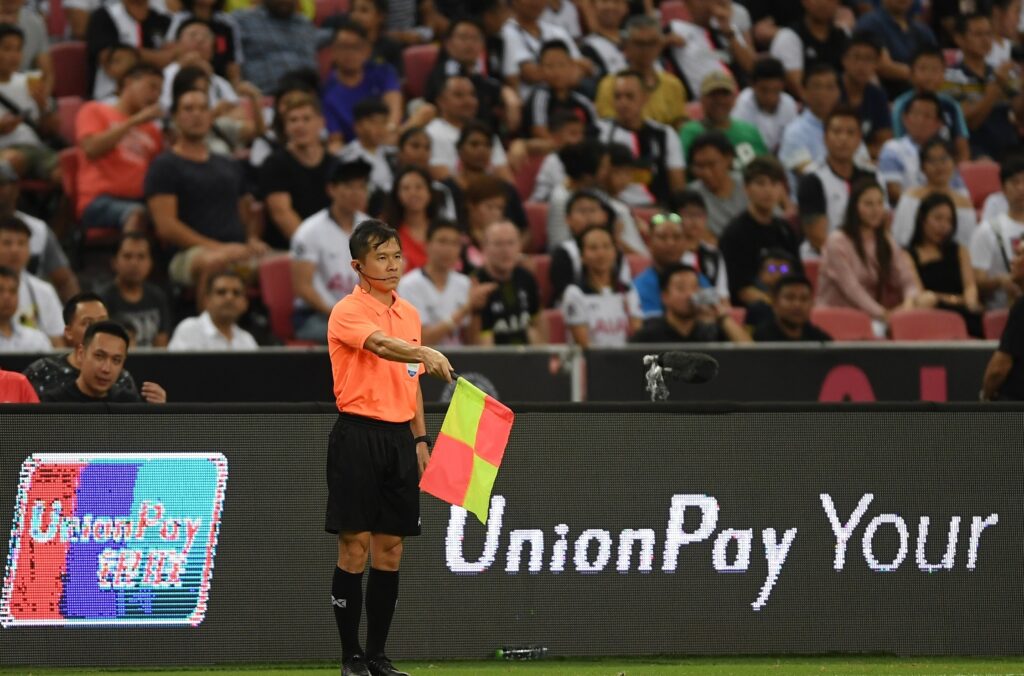In spite of all our assumptions about what it takes to become a competent referee, mental strength, agility, speed, balance, technical officiating skill and a robust Law knowledge, one of the most important skills that you can master is that of staying calm and composed under pressure. Staying relaxed prior to a fixture is the secret to a high-level performance on the field of play.
You really need to know how to stay calm and relaxed in order for all those other refereeing skills to work properly and for your performance to flow smoothly, rather than tight and rigid.
If you are too nervous when training ahead of your next appointment, and especially during key fixtures that you’re officiating, then your body will become tense, your mind will be distracted, and you won’t be able to manage the game to the best of your ability. Meanwhile, it’s important to remember that mental toughness strategies are a ‘long-term’ effort, meaning they must be practiced consistently over time in order to really be effective. In this Blog I’m going to share with you some pre-match coping techniques that can be applied directly in the moment when you’re about to blow the first whistle and are feeling “under the cosh” so that you can stay calm and in control.
1. Reframe Negative Self-Talk
What you say to yourself prior to kick off will directly affect how nervous you become. If you are doing yourself down before a game, or after you a mistake, you will only heighten your stress and anxiety levels. Instead, make a conscious effort to interrupt the flow of negative self-talk by replacing it with a more positive or even neutral inner dialogue. You have to act as your own biggest supporter! Speak to yourself in a supportive and encouraging way, or better yet, stop speaking to yourself completely and focus on what you see in front of you, in your game and remain in the moment.
2. Focus On What You Want To Happen, Not On What You’re Afraid Will Happen
Keep your match focus on exactly how you want to officiate the game and what you want to do. If you focus on what you are afraid might happen, you will not only distract yourself, but you’ll also cause yourself further stress and anxiety. Instead, focus on the feel of perfecting your patrol paths, playing a great advantage, communicating well with players or recognising foul play and the correct sanction.
3. Concentrate On Refereeing The Game, Not On Getting Every Decision Correct
If you want to officiate to your very best level and deliver the game successfully, you must be sure that you do not obsess over getting every single decision correct. Your focus should be on the process, not the outcome. The process is what’s going on at any given moment. If you concentrate on the second by second, minute by minute phases of play within the game, you will actually maximise your chances of delivering the game successfully!
4. Control The Controllables
Be sure that you keep your focus on what you can actually control. Things like the weather, hostile crowds, and the attitude of players towards you and your colleagues are ‘uncontrollables,’ meaning that you can’t really do anything about them and thinking about it will only distract you and damage your performance. But your focus, your body language and your willingness to listen to your referee coach, those are the things you can control, so put your mental energy into those things instead.
5. Let Go Of Your Mistakes Quickly
Dwelling on mistakes doesn’t do you any good when you’re still in the fixture. When you make a mistake, let it go quickly and get yourself mentally refocused as if it didn’t happen. When the match is over you can assess what happened and think about how to improve in the future, but you’ve got to put that mistake out of your mind immediately when you’re in the action because you probably still have a pretty good chance of bouncing back and getting your remaining decisions correct if you maintain your energy and concentration.
6. Tighten & Release
If you can feel tension in your arms, legs, or back before the game, a quick way to let this tension go is to deliberately tighten those tense muscles even more and then release. Hold the tension for 10-15 seconds, then let it go. Repeating this 2-3 times with any tight muscles will usually help you feel more relaxed and at ease within just a couple minutes.
7. Stretch
If you are mentally uptight before a game, then physically stretch! Incorporating stretches into your warmup will help you release a great deal of tension from your body while also helping to refocus your mind away from negative or unhelpful thoughts. Stretching will help you regain control both physically and mentally. It is critical that when you do stretch physically, all of your focus should be on the feel of that stretch, entirely on what you are doing, in the moment.
8. Enjoy It
If you want to perform at your best out in the middle then remember to have fun first! Don’t wait until you have a good performance before you allow yourself to enjoy it. You will always referee at your best when you’re having fun because you’re genuinely engaged in the action and enjoying the process itself. If you make the performance too serious, your muscles will tighten and your performance will suffer. Peak performance lies right in the middle of where fun and serious come together, so aim to have a good balance of both.
Feel free to print these out and hang them on your wall or keep them in your kit bag, so that you can internalise the tactics, that’ll help you manage the event when tensions run high in the heat of the middle on matchday.
At The Third Team I work individually and in collaboration with different professionals where I have developed workshops and 1-2-1 sessions associated with Resilience and Mental Toughness Development to help referees. The workshops and 1-2-1 sessions are interactive, where referees are encouraged to open up and share their experiences to help themselves and each other.
Feel free to contact me if you’d like to know more about my workshops or 1-2-1 sessions and how I could help you or your officials.
Best Wishes,

Nathan Sherratt
Referee Educator & Managing Director of The Third Team

Nathan Sherratt
Nathan Sherratt, Referee Educator, Resilience Trainer and Managing Director of The Third Team. A Mental Toughness Practitioner based in County Durham, North East England.

